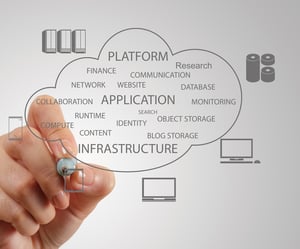Reading time: 5 minutes

In the previous post, we explored about the manners AI changes workplace. In today's article, we will discuss how AI benefited businesses.
Benefit 1: Self-learning capabilities
In the longer term, enterprises will move towards self-learning enterprises, which requires making sense of the output from machine learning and advanced analytics and closing the loop between insight, action, and outcomes. A continuous feed of reliable data, relevant insights and recommended actions generated provide additional value to have a closed loop where users can contribute to data reliability, and improvement of business processes and customer experiences.
Benefit 2: AI-Driven Relationships
The use of AI will not be limited to data and enterprise development. It could also be used to predict success rates for human relationships. Relationship bots powered by AI could be used in predicting the success of human relationships, trustworthiness, and other qualities that normally would be deciphered through personal and direct experience. This will also apply to the enterprise where AI will play a greater role in deciding the best candidates for specific roles, leaving HR to play an increasingly administrative role. Facial and vocal analyzers could provide essential mood information for companies, helping to further optimize business decisions. One example where emotion recognition can benefit companies is in customer service.
Benefit 3: Big Data Crunching
From present day to the future, it is forecasted that a lot of educating to aid the understanding of what AI really is capable of and how it can serve as a complement to business professionals. There have been pushback from people who have been sold on the narrative of man versus machine rather than man plus machine. In the near term, this thinking fizzling out as businesses begin to leverage AI to take care of the “heavy lifting” involved with number crunching and data wrangling.

Benefit 4: Improving (Not disrupting) IT
Outside of the enterprise, AI is quickly becoming a phenomenon in daily life, whether it’s staying organized with a virtual assistant like Siri and Alexa or relying on Waze / Google Maps for the fastest commute time to work, or tagging photos with Facebook’s facial recognition technology. Any major technology game changer, AI’s application in transforming IT will, create winners and losers among vendors. In fact, it should become one of the tech space’s more fascinating disruptions in the coming years.
More companies today are using innovations such as Natural Language Processing — which allows machines to understand and analyze human speech or text to allow enterprises to easily query and understand everything happening in their networks. In addition, they are using machine learning, neural networks, and data mining technologies to proactively identify or predict problems, understand the cause and scope of anomalies, and recommend solutions, with the goal being completely self-healing IT infrastructures.
Benefit 5: Enabling Automation
Automation may be growing in adoption but its impact can benefits today’s workplace. Automation in essential processes will free-up valuable people for more critical customer experience engagement. Take for example, customer support bot technology — this automation tool does not replace talent but helps organizations utilize its talent. Bots free your teams to move higher up the value chain and unleash their star power.
As a result, there will be a step-change increase in resolution speeds that will impact teams’ overall success. As companies harness the potential of automation to complement their support teams, these tools will handle the transactional duties, arming live teams with the details to create meaningful value. It can offer your business tangible metrics, but it’s your team that is the power behind meaningful insight.
Benefit 6: AI as Data Access Enabler
Automation could potentially lower the bar for both access to data and ease of interaction, but that it will not be some silver bullet where suddenly everyone is relying on automated insights to inform every decision. Even after adopting and automating AI applications, businesses will need to teach their organizations about what data is available, how it can be applied, and how it should be applied. That is why internal data evangelism is critical to the adoption and growth of AI solutions and automation in the enterprise.
To bridge this gap, companies will invest in data evangelist roles, specifically focused on working across the organization to educate users about available solutions, the value of data-driven decision making, and how to change traditional workflows to take advantage of the new capability.

The promise of automation is becoming reality. But it will not happen automatically, instead evangelism, education, and an understanding of the business will become the new enablers instead of technical expertise.
[1] https://www.cmswire.com/information-management/6-ways-artificial-intelligence-will-impact-the-future-workplace/



